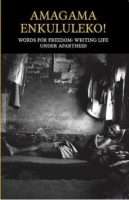My husband Sol and I nurtured our family over sixty years. We raised six children, who subsequently had their own households and children. In raising our children, we established certain family traditions including regular meetings, giving each family member household tasks and a sustained focus on family education.
We also formed a constitution to ensure that what we had created would be continued and improved upon by future generations. My family – the Sol-Con family – has grown larger and more complex. Over the next sixty years, it will become difficult to recognise some relatives as the family will have grown beyond recognition. It was our hope that having a constitution would create a platform for family members to meet up and connect, a system to ensure that all family members are welcomed and recognised within the family.
I believe many families could benefit from having a constitution. A constitution helps unite relatives by being explicit about the family’s mission and values. It is important that such a constitution remains a living document, that everyone feels as though they have a say in its terms and that it adapts to meet the needs of a changing world. Its goal is to ensure that individual members and the family collective work together to address broader family activities. It is a compass for the future.
THE NGCABA FAMILY CONSTITUTION
Vision
The Sol-Con family, as a caring family, will strive for unity of its members and their ability to feed themselves in a self-sufficient manner.
Mission
The vision will be achieved by educating family members and encouraging members to work hard during their lives.
Organisational structures
The family will have an assembly, a council and a family office. The chairperson of the assembly will be elected every year, as will the secretary, treasurer and organising committee members.
Committees
The family will form the following committees, among others:
– The Younger Generation Committee will develop a charter for members of the younger generation to address issues relating to this age cohort. This committee will also be responsible for drafting the family’s Code of Ethics.
– The Family Relations Committee will ensure that family relations are always cordial.
– The Conflict Resolution Committee will listen to and resolve any conflict arising between family members.
– The Family Support Committee will manage requests for help, whether financial or practical, from members of the family who need support due to circumstances beyond their control.
– The Geriatrics and Family Support committees will manage a family care programme for elderly members of the family and those who are in need of care.
– The Sol-Con Brand Committee will develop and manage the Sol-Con brand going forward. All family members wanting to use the brand will have to subscribe to the Sol-Con brand values.
Establishing committees is very important. These committees are required to meet at least once a year to deliberate and structure their activities. Members should write to the committee chairperson to raise issues. Electronic engagement is encouraged.
Individual family members
All family members will have rights and responsibilities to the family, as detailed later. Family members are also expected to develop a personal development programme for their own personal growth.
Finances
The following funds will be created:
– A voluntary mutual fund will be established to benefit those who participate directly in the fund. This will be governed like any investment structure.
– A voluntary family education fund will be established to help those members of the family who cannot afford an education. The fund will act as a guarantee for a bank loan. The beneficiary will have to repay the loan upon entering the workforce.
– A voluntary futures investment fund will be created to help the family with governance and constitutional matters. This includes educating the next generation about the constitution and its respective structures.
– A family history fund will be created to help fund continued research into the family’s history and the ongoing documentation of family events.
This will help to encourage future generations to excel and be good citizens.
Responsibilities of individual members
Family members are required to:
– Work to support themselves, their children and their parents. This ethic of work should extend to all family members, including children.
– Complete assigned or chosen tasks for the good of the family or society as a whole.
– Conduct their individual and collective activities in a trustworthy manner. Trust is the basis for working together as a family.
– Strive for unity of the collective and their respective family units.
– Care for family members who are less fortunate. The happiness of the individual is linked to the happiness of the family. This happiness should be something that all members work towards achieving, with the understanding that happiness means different things to different people.
– Develop a personal happiness charter.
– Ensure that their wills, estate plans and letters of wishes are in order to provide certainty when they are gone. This will avoid family feuds.
– Buy life policies, insurance and other products to ensure that their death does not incur more pain than is necessary for those they leave behind.
Family members are encouraged to:
– Acquire a medical-aid policy.
– Undergo psychometric or psychological analysis on a regular basis to establish gene-related issues. The family will establish a relationship with a psychometric analyst and a psychologist for this purpose.
– Record and store their genetic code (in accordance with the laws of the country).
– Establish relations with philanthropic structures and civil structures, both in their individual capacity and as a member of the Ngcaba family.
– Expand their interests beyond the borders of South Africa and become global citizens. This can be done through their professional careers or business opportunities.
Household responsibilities
Each family unit is expected to:
– Develop work plans for children between the ages of six and twenty-two. This work plan can start with simple household chores like doing the dishes or making the bed and progress to working during the school holidays as the child gets older. This will help foster a good work ethic, which is central to the family’s values.
– Have a local family doctor.
– Frequently and openly express love, especially parental love. Familial love is what bonds the family together. It should be nurtured at all times.
General Resolutions Communications
An online family portal will be created and used to communicate important announcements and events to the collective.
Family database
There is no future without a past. A deep understanding of the family’s background and geography should be part of common family knowledge. A family tree with clan names, ancestral names and positions will be created and made available to all generations.
Additions to the family
All children born to the Ngcaba family will be automatically included in the family structure and will have the same rights and benefits as existing members. This includes children born to surrogates and adopted children, provided these activities are done in terms of the laws of the country. People marrying into the family will be inducted into the family no later than three months after joining.
Tombstone unveiling
Tombstone unveiling events should take place five to ten years after a family member’s death. Yearly graveyard visits and cleaning is encouraged.
Death
A protocol for managing death and related events should be developed and signed by all adults in the family. Dealing with death can seriously affect a person’s mental health, especially in the elderly. The family should take steps to help grieving family members if needed.
Family education
– Family education is one of the Sol-Con family values. It extends beyond formal schooling to include ongoing education on a range of topics, including financial management and self-development.
– A family education programme should be put in place to ensure the ongoing education of family members of all generations. This programme should be customised to each generation’s needs. Senior family members should ensure that all junior members’ educational needs are provided for.
– A family certification process should be developed to recognise those who have gone through certain phases of family education. Learning sessions should be recorded to credit members for attendance.
Religion and spirituality
The Sol-Con family value system emanates from Christianity. Family members are encouraged to register with the Methodist church in their neighbourhood and children are urged to attend Sunday school every week.
Family culture and traditions
– Culture is an embodiment of who we are. Cultural norms are not static; they should evolve to meet the needs of younger generations.
– The Sol-Con family’s traditional code is based on Christian values, coupled with a scientific approach. It is also based on our ancestral framework. The code will be written down to act as a guide for new members entering the family. This guide will cover issues such as language and the traditions followed at certain landmarks in life (for example, birth, death and marriage).
Amendments
The constitution may be amended every twenty years.
*****
Tell us: What do you think about having a family constitution?






